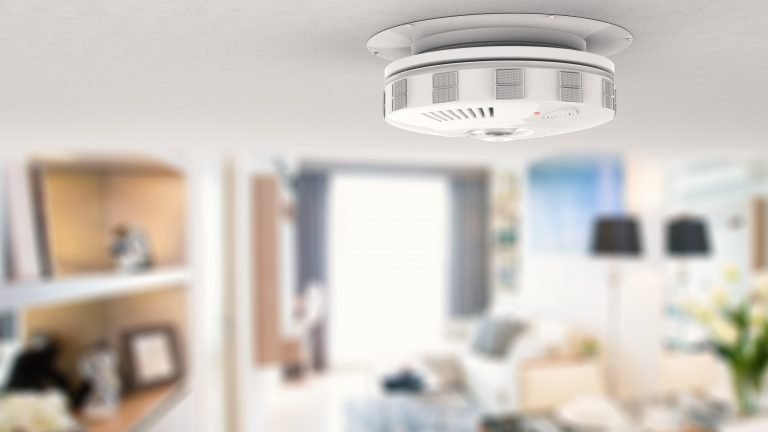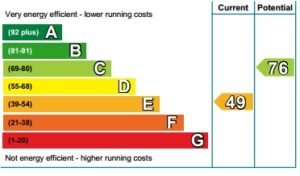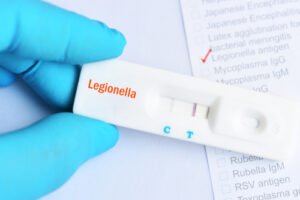It is a legal requirement for all Landlords to make certain that the property they are renting meets all the recommended safety standards. When safety regulations change, it is the responsibility of the Landlord to acquire the latest legislation to ensure that these conditions are met and maintained.
Set in law, the property must be suitable for human habitation (Fitness for Human Habitation Act 2018) The conditions included, are the prevention of hazards such as damp and mould growth, excess cold or heat, and ventilation, to name but a few. For more details on the projected standards necessary, click on the following link.
https://www.legislation.gov.uk/ukpga/2018/34/enacted
If landlords fail to implement these standards, the consequences can be extreme, both personally (through banning orders- sometimes for life) and financially (fines, possibly up to £30,000, depending on the severity of disregard) So it is vital, that as a Landlord, you make sure from the on-set that all the essential procedures are adhered to.
It is important that landlords execute compulsory risk assessments and implement any necessary safety measures on all properties prior to rental.
Key areas:
Fire safety checks
Smoke Alarms:
It is mandatory in England for Landlords to provide smoke alarms in all properties, and it is a legal obligation to ensure that there is a smoke alarm in place on every level of the building, such as hallways and landings. These alarms must be in appropriate working order and should be tested on the first day of the occupancy by the Landlord, and records kept throughout the tenancy agreement, with the landlord replacing the battery annually, and the whole unit every ten years. It is advised for tenants to test the alarms once a month and to contact their Landlord should they have any concerns.
Carbon Monoxide safety checks:
Carbon Monoxide Alarms:
Carbon monoxide, known as the ‘silent killer’ can occur when vents for gas or oil appliances don’t work appropriately, so it is vital for landlords to provide a carbon monoxide detector in all properties prior to any tenants moving in, and ensuring that they are in full working order. These alarms constantly monitor the presence of Carbon Monoxide in the home and, ideally, should be placed where any gas, oil or solid fuel appliance is present. After the initial inspection, it is up to the tenant to regularly check that the alarm is working, though the Landlord should continue to test these alarms on an annual basis. When a CO detector expires, which is usually between 5-10 years, depending on the manufacturer, then it is the duty of the Landlord to replace it.
Gas safety checks:
Before you consider letting your property, you are required by law to make sure that all the gas equipment and appliances are safe before your tenants move in, and thereafter, you must have it checked annually by a qualified Gas Safe registered engineer and keep the certification in your Gas Safety Record.
Electrical safety checks:
Landlords must ensure, that before the tenants move into the property, an electrical safety test is done by a qualified person, on all electrical systems, including plug sockets and light fixtures, and that they are considered operational and safe before occupancy can be allowed.
For rental properties that include electrical appliances (anything with a plug on) eg. fridge, washing machine etc. it’s imperative that the supply of such electrical devices are safe. They don’t necessarily have to be new, and although not a legal requirement, it’s good practice to have them PAT tested and a certificate acquired.
The Regulations came into force on 1 June 2020 and form part of the Department’s wider work to improve safety in all residential premises and particularly in the private rented sector.
Energy Performance Certificates (EPCs):
Since 2008, it’s been a legal requirement for landlords to have an Energy Performance Certificate with a minimum rating of E (grades range from A-G) and the certificate needs to be renewed every ten years rating the building’s energy efficiency.
Legionnaires:
Legionella can cause severe health conditions, which in some cases can be fatal, so landlords have a legal responsibility to carry out a risk assessment to identify any particular concerns and put in place measures to prevent, reduce or irradicate the levels of bacteria present. For more information on this, please go to the link below.
https://www.upad.co.uk/hub/essential-tips/legal-tips/guide-legionella-regulations-landlords
Safe? Then you’re ready to go:
The safety and wellbeing of tenants is of the utmost importance, and therefore it is crucial, as well as being a legal requirement, that Landlords have all the mandatory protection measures in place before letting out the property. Rules and regulations may differ slightly depending on where you live in the UK, so always check the Landlords Safety Procedures with your local authority first.





